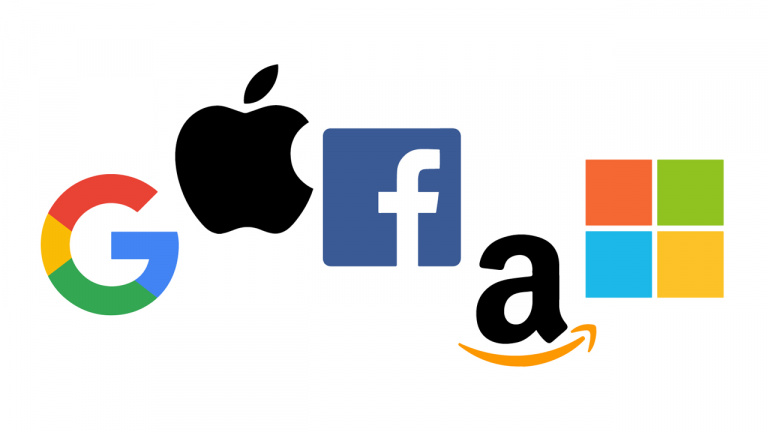News JVTech In the United States, the GAFAMs make laws and impose their vision on the American government
GAFAM has very powerful leverage, and it recently proved it again by withdrawing two American bills that would have endangered its interests.
The GAFAMs win a major victory against the American government
Google, Apple, Facebook, Amazon and Microsoft. These 5 giants form a powerful lobby in the United States, but also in the world: the GAFAM. When these companies are competitors in the marketplace, they know how to put their differences aside to defend their interests together, putting pressure on governments to introduce laws that suit them or repeal those that oppose them bother most.
This is exactly what happened recently in the United States with the 2023 Spending Bill that was introduced to Congress on Tuesday, December 20th. It covers very broad issues and plans to allocate $1.7 trillion in public spending over the next year.
Among all the proposals in this text we find an additional amount of $44.9 billion to support Ukraine, measures for more complex violent contesting of election results and means to deal with the increasing number of natural disasters. But that’s not all, and technology is also in the crosshairs, such as banning all government officials from downloading TikTok.
But if what is in the final version of the proposed text is interesting, what is missing is just as instructive. Thus, two proposals aimed at reducing the power of GAFAM have completely disappeared …
The GAFAMs have spent more than $100 million withdrawing two bills
The spending bill proposed in the US Congress last Tuesday is a so-called “omnibus” law that brings together many very different issues and is not necessarily related. It should include two very important bills that, according to Bloomberg largest legislative effort in 30 years to limit the power of GAFAM. Despite the support of the White House and leaders of the Republican and Democratic parties, they have completely disappeared and this is a major victory for the Silicon Valley giants.
These two articles of the law are intended to prevent GAFAM from advertising its own services on its website. We can think of Google, which highlights, for example, Gmail, Google Drive and the other elements of its suite. And that’s not all, it would have forced companies like Apple to open their iPhone to app stores other than their own, thus reducing their monopoly on their devices.
It is thanks to significant lobbying targeting both elected Democrats and Republicans that the two proposals have disappeared. Apple and Google CEOs Tim Cook and Sundar Pinchai also laid their stone on the building. For example, in one year, the GAFAMs spent $100 million on targeted advertising, promotion of scholarly work, and various and varied gifts to help accomplish this feat. according to the Wall Street Journal.
The genius of the GAFAM lobbyists was also in finding the right way to address each camp. For Democrats, the argument of destroying privacy was made, while Republicans were instead persuaded with arguments related to online freedom of speech. Ultimately, regardless of the camp, the message was the same: you need us to protect what is important to you.
Everything accelerated during the midterm elections. For example, Bloomberg points out that “in several states where Democratic candidates were struggling, commercials flooded television networks to underscore the dangers of these reforms. They have achieved their goal: several candidates have asked their party not to pass these laws before the November elections.”
And that’s not all ! Google and Amazon have sponsored dozens of small business owners to help their Washington cause by showing them how important GAFAM services are to them. However, doubts can be raised about their objectivity after CNBC in particular found out that some of the SME associations funded by GAFAM had agreed to speak on behalf of people who had never heard of them…
And of course the threat from the East was also presented, with GAFAM pointing out that Beijing would be only too happy with these laws, Chinese companies would not have to comply with them while the activities of these flagships of American industry would be hampered.
On the other hand, the tech companies that supported these laws have also lobbied and tried to get their point across. But given Big Tech, the funds will not have been enough. Given the $36.4 million that GAFAM spent in the first few months of 2022, groups supporting the law spent “only” $193,000. A very difficult competition because its means are important. Nothing is ready, but the arrival of the new Congress, much more divided than the previous one, will make it very difficult to pass this type of bipartisan measure.








